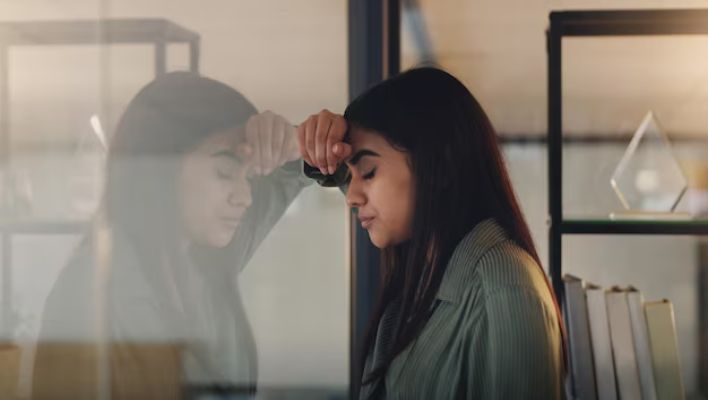What is OCD Staring All About?
Staring OCD (sometimes visual fixation called OCD) is a subtlety of obsessive-inflammatory disorder where individuals are compulsorily fixed on visual stimuli. Unlike casual observation, this involves:
- Intense anxiety about where or how you're looking
- Feeling physically unable to break your gaze
- Spending excessive time "checking" or rechecking what you see
- Significant distress about the behavior
A 28-year-old teacher gets stuck by staring at his students' foreheads during the lesson, nervous he can accidentally contact the inappropriate eyes. The more difficult he tried to stop, the worse it became.

Common Staring OCD Symptoms:
How do you know if it's OCD staring versus normal behavior? Watch for these signs:
✔️ Prolonged staring at objects/people (far beyond what's typical)
✔️ Intense fear about where you're looking (e.g., "Am I staring inappropriately?")
✔️ Compulsive mirror checking or avoidance
✔️ Physical discomfort from the act of staring
✔️ Significant time wasted on starting rituals
Some cases may be visual Tourettic OCD, where the staring feels more involuntary, like a tic. A specialist can help differentiate.
The Hidden Causes Behind Staring OCD
Understanding staring OCD causes helps demystify the behavioUr:
1. The Hyperawareness Trap
Your brain becomes overly conscious of normal visual processes, turning automatic looking into something that requires manual control.
2. Sensory Processing Differences
Many with OCD sensory issues report visual hypersensitivity, making certain sights feel "sticky" or demanding attention.
3. Perfectionism Gone Awry
The need to "perfectly" take in visual information or avoid "wrong" looking.
4. Uncommon OCD Symptoms
Staring compulsions are among the uncommon OCD symptoms that often go unrecognized, delaying treatment.

Read More: People-Pleaser's Trap & How to Escape It
Staring OCD Treatment Options That Actually Work
1. Specialized Therapy Approaches
Working with a staring OCD therapist familiar with these symptoms is crucial. The gold-standard treatments include:
- ERP (Exposure Therapy): Gradually facing staring fears without performing compulsions
- Cognitive Restructuring: Challenging catastrophic thoughts about looking
- Sensory Integration: For those with co-occurring OCD sensory issues
Many therapists now offer online therapy for obsessive-compulsive disorder, which can be ideal if you're uncomfortable with in-person sessions.
2. Medication Options
While not a standalone solution, SSRIs can help reduce the anxiety fueling staring compulsions. Always consult a psychiatrist.
3. Practical Self-Help Strategies
The 5-Second Rule: When stuck, blink hard and count to 5 before looking away
Designated "Staring Time": Contain compulsions to specific periods
Visual Grounding: Practice shifting focus between multiple objects
Blue Light Glasses: Can help with visual hypersensitivity
When to Seek Professional Help
If you're thinking "OCD is ruining my life" because:
Staring rituals consume >1 hour/day
You're avoiding important activities
Relationships or work are suffering
You experience visual Tourettic OCD symptoms
...it's time to reach out. Early intervention leads to better outcomes.
You're Not Stuck Like This Forever
Staring OCD can feel like a life sentence, but it's not. With proper treatment:
✔️ The "stuck" feeling becomes less intense
✔️ Compulsions take up less mental energy
✔️ You regain confidence in social situations
✔️ Visual hypersensitivity (OCD sensory issues) improves
One recovering patient described the treatment as "learning to trust my eyes again." That freedom is possible for you too.
Read More: Your Brain’s Inner Tug-of-War


